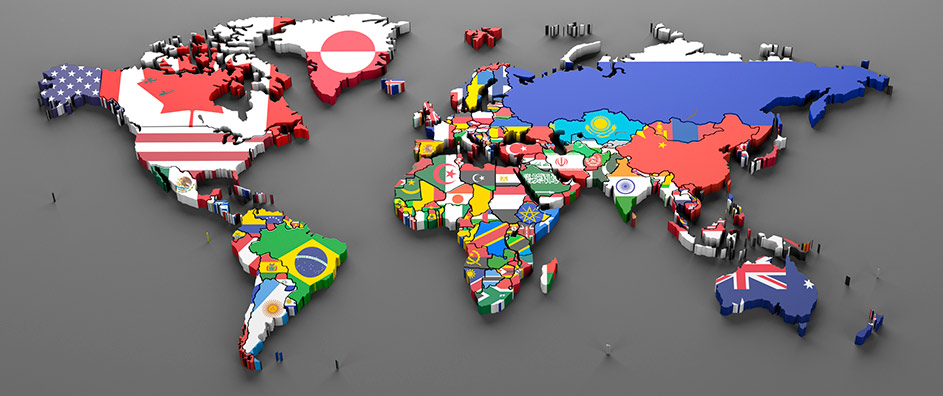The Bahá’í teachings posit the imperative of overcoming parochial nationalism through the elucidation of the interconnectedness of humanity. In examining the concept of “Ending the Era of Unfettered National Sovereignty,” it is vital to explore its philosophical roots, normative implications, and practical applications within a globalized context. This discourse delineates the multifaceted dimensions of national sovereignty, the emerging paradigm of global citizenship, and the Bahá’í perspective on fostering unity amidst diversity.
National sovereignty traditionally encompasses the prerogative of states to exercise authority over their territory and govern their affairs without external interference. However, this notion has frequently devolved into a contentious and divisive force. The Bahá’í teachings advocate for a transformative approach that transcends national boundaries. This shift is not merely a critique of nationalism but a call for a re-envisioning of societal structures that prioritize collective welfare over parochial interests.
The philosophical underpinnings of this transition are rooted in the Bahá’í principle of the oneness of humanity. The recognition that all people are members of a single global community necessitates a reevaluation of the principle of sovereignty. The exclusive focus on national interests often engenders conflict, exacerbates inequalities, and perpetuates cycles of oppression. In contrast, embracing global interconnectedness compels nations to collaborate on pressing issues such as climate change, public health, and humanitarian crises.
One must address the notion of collective security in this context. The Bahá’í teachings emphasize that no nation can exist in isolation or achieve enduring peace through unilateral action. Cooperative governance mechanisms that accommodate the principles of collective security are paramount. Such frameworks would facilitate dialogue and consensus-building among diverse stakeholders, engendering a climate of mutual trust and understanding.
Moreover, the implications of ending unfettered national sovereignty extend into the realm of social justice. The Bahá’í perspective underscores the necessity of equitable resource distribution and the elimination of systemic injustices that plague marginalized communities. National sovereignty, when wielded with an unfettered grip, can serve to perpetuate disparities, entrenching privilege for a select few while disadvantaging the majority. The Bahá’í call to action is clear: sovereignty must be redefined to embody not just the rights of nations, but the rights of individuals and communities within those nations.
In practical application, moving towards a world where national sovereignty is tempered by global responsibility necessitates concerted efforts in education and policy reform. Through comprehensive educational initiatives, individuals can cultivate a more profound understanding of global interdependence. Such efforts would promote empathy and compassion across borders, nurturing a generation that values inclusivity and collaboration over competition.
Further, the integration of global citizenship into educational curricula can equip individuals with the tools needed to navigate a complex global landscape. The Bahá’í teachings suggest that education should advance not only intellectual empowerment but also moral and ethical development. This dual focus fosters a sense of responsibility towards humanity, encouraging engagement that transcends national limitations.
Reform in national policies is equally critical in this endeavor. Governments must reevaluate legislation that prioritizes national interests to the detriment of global well-being. By adopting policies that acknowledge and embody the interconnectedness of people, nations can take meaningful strides towards promoting peace and cooperation. This may include collaboration on international treaties, diplomatic endeavors, and sustainable development goals aimed at uplifting marginalized populations.
Acknowledging the role of international organizations also bears significance in this discourse. Institutions such as the United Nations must evolve in their capacities to mediate conflicts and facilitate cooperation among nations. The Bahá’í teachings advocate for a strengthening of such organizations, ensuring they operate on principles of equity and justice. This entails reconfiguring the power dynamics within these entities to better represent the diverse voices of humanity.
Importantly, the spiritual dimensions of these teachings cannot be overlooked. The Bahá’í faith emphasizes that the transformation of societal structures must be accompanied by an inner transformation among individuals. Developing virtues such as love, compassion, and justice is paramount in the quest for a world where national sovereignty is tempered by collective responsibility. These virtues can guide individuals toward collaborative efforts that prioritize the common good over divisive national interests.
In summary, the Bahá’í teachings advocate for a paradigm shift away from unfettered national sovereignty toward a more equitable and cooperative world framework. This endeavor calls for a profound reflection on our interconnected existence, urging individuals, communities, and nations to transcend their boundaries in favor of collective empowerment and global responsibility. By fostering understanding, compassion, and collaboration, humanity can work toward a future marked by unity in diversity, where the strength of each nation contributes to the flourishing of the global community.
In conclusion, the cessation of unbridled national sovereignty requires an earnest commitment to global well-being, social justice, and the nurturing of a sustainable future. It is an invitation to engage in the intricate tapestry of human existence, advocating for a world where every individual thrives, and the principles of the oneness of humanity come to fruition.
